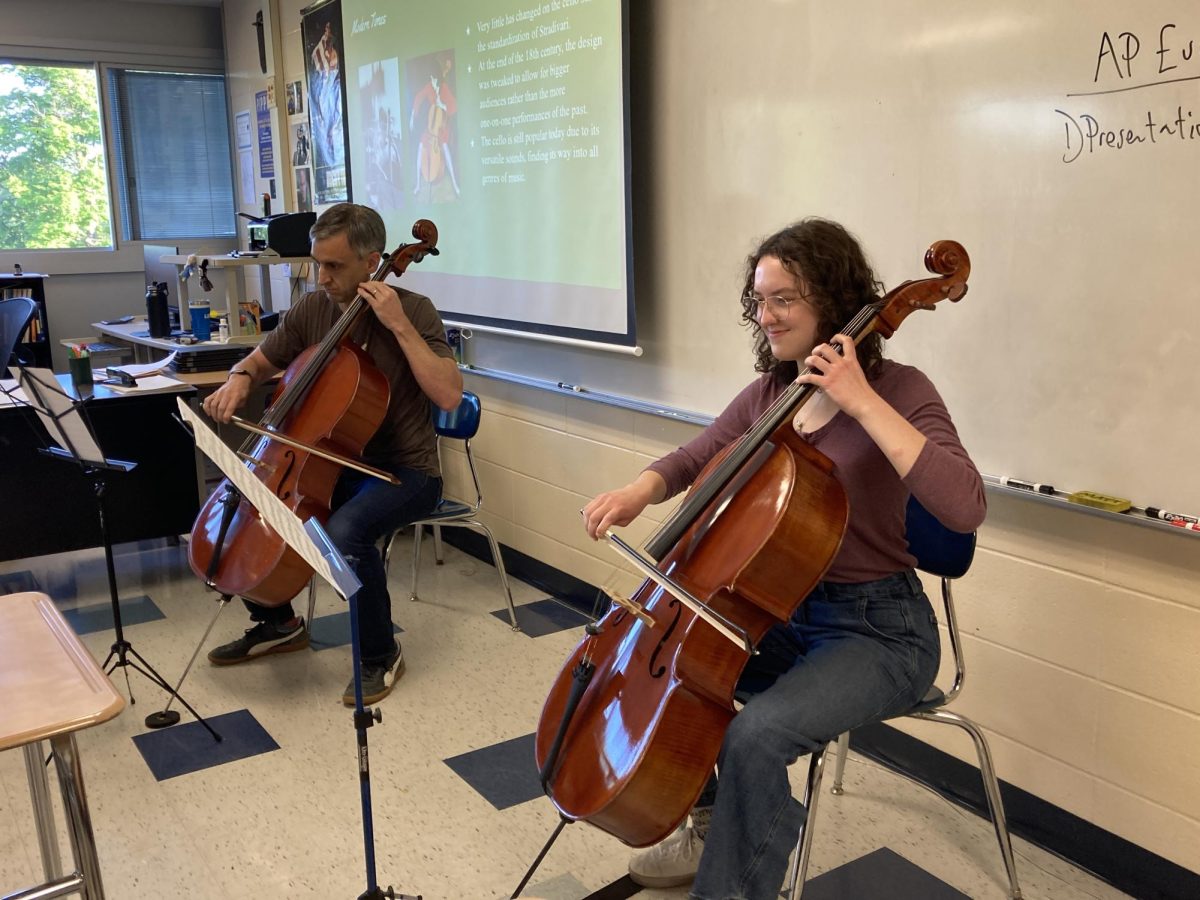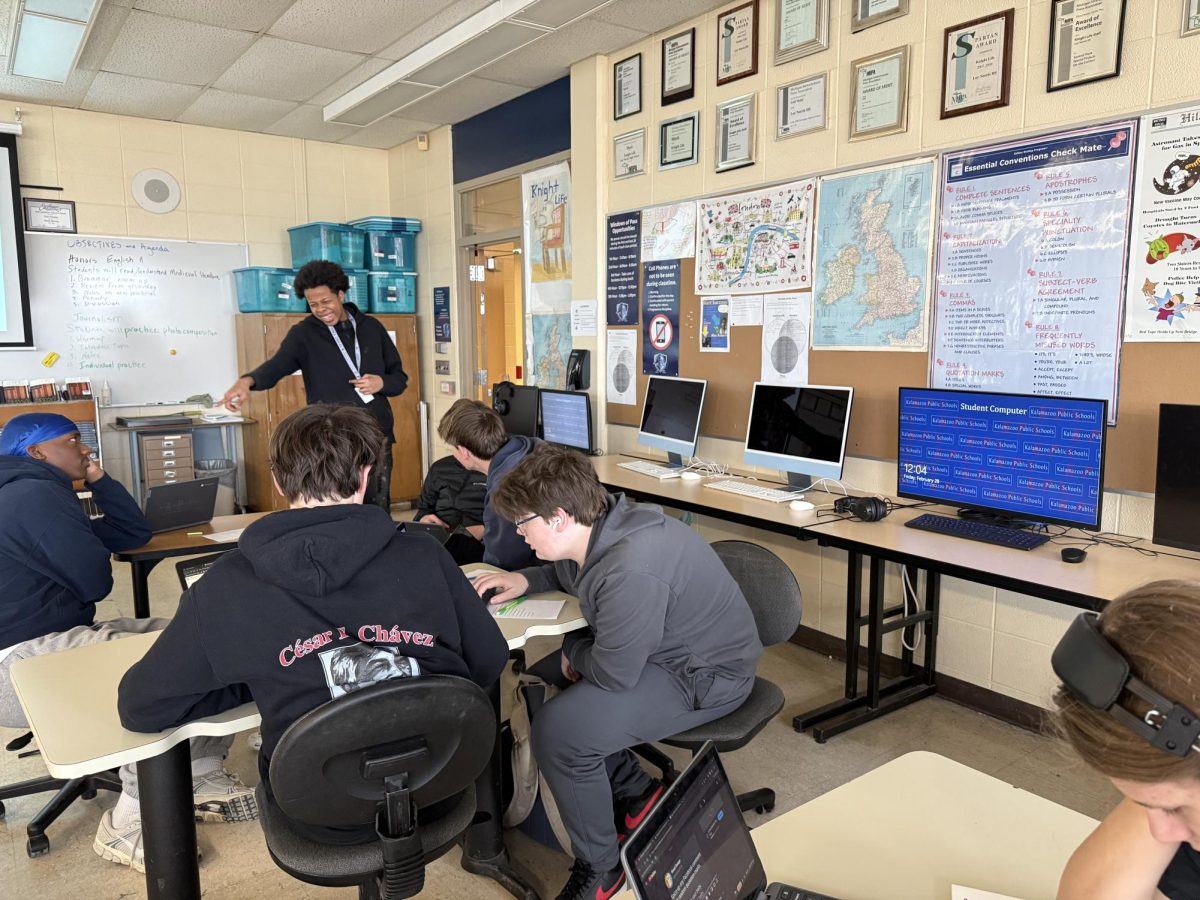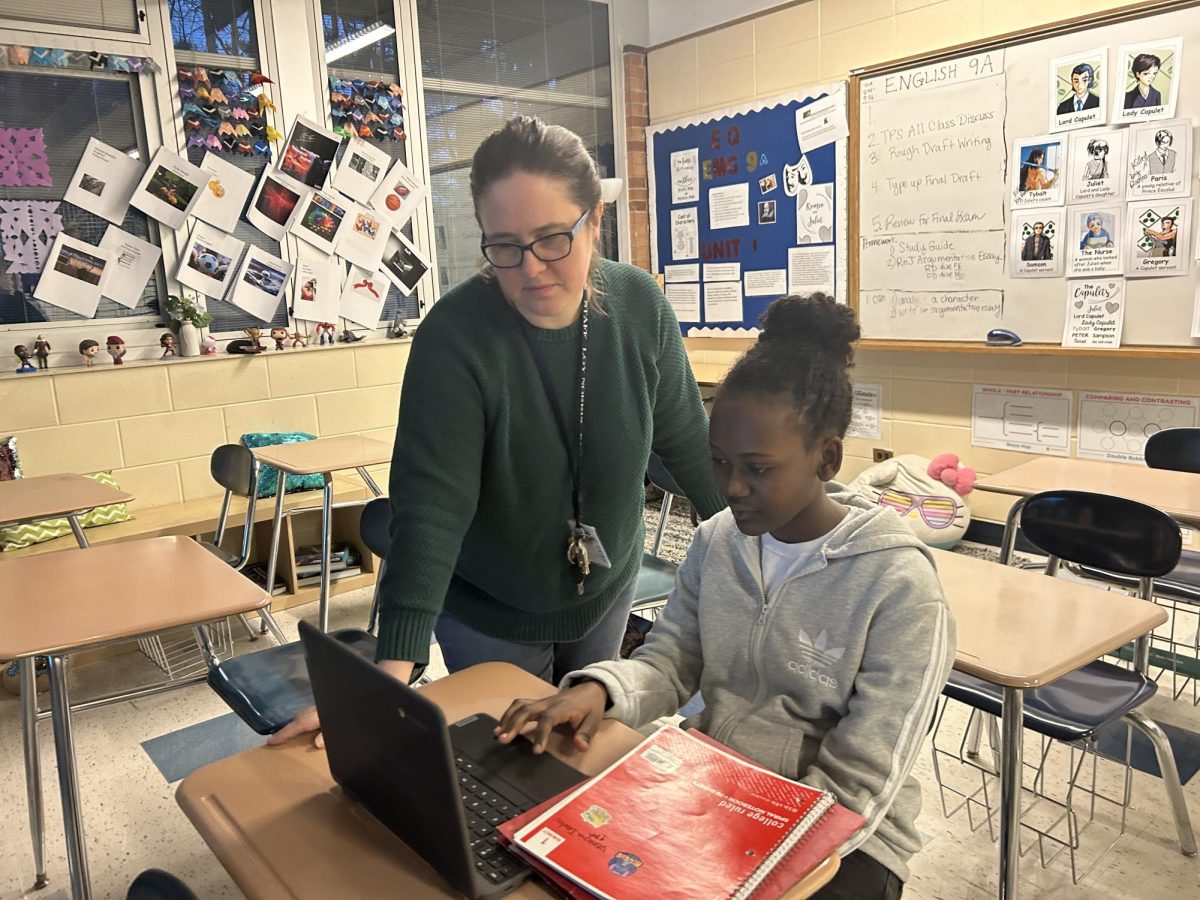Though the 13 AP classes offered at Loy Norrix are very different, both in content and demographics, the electrifying atmosphere of a classroom the day before an AP exam is universal. Students pass flashcards around, frantically flip through notes and ask their teachers last-minute questions. For these students, it seems that the whole year has been leading up to this moment.
LN has an AP participation rate of about 49%, according to the US News and World Report’s Best High Schools Rankings. One reason these numbers are so high is that AP classes provide several benefits.
Most people are aware that AP classes give the option of a college credit or class waiver in college.
“If they [AP students] are planning to go to college, [this] is a huge tangible benefit, especially because KPS pays for the tests,” AP Language and Composition teacher Brianna English said. “That will save them lots of money down the road.”
However, not all colleges accept AP credits, and many only accept the credit if the students have passed the exam with a 4 or 5.
For example, the University of Michigan only accepts an AP Physics credit with a 5 in both Physics 1 and 2, the latter of which is not even offered at Norrix.
Though the credit may not be a guarantee, AP classes also provide an advantage in getting into college. Several schools, including Norrix, give AP classes extra weight regarding GPA. According to the Princeton Review, a B in an AP class can often provide more benefits grade-wise than an A in a general class.
Senior Odessa Clemente has taken AP classes since her sophomore year. She’s noticed that they have improved her GPA throughout high school.
“I think that if I hadn’t taken those AP classes and worked really hard in them, then I wouldn’t have the GPA that got me into the college that I wanted to go to,” Clemente said.
Along with all of these tangible benefits to grades and college opportunities, AP classes provide many holistic benefits. English has been teaching AP Lang for the past 10 years and has noticed significant growth in her students whether or not they get the credit.
“Unless a kid doesn’t put in the effort, regardless of the score they get on the test, they’re walking out of here a better writer, a better reader, a better thinker,” said English.
These skills often come into play in college, and AP students can appreciate the advantage of having taken higher-level classes in high school.
Clara Moss is a freshman at the University of Michigan who took several AP classes during her time at Norrix.
“In college, you have to put in a lot of effort, even if it’s just a basic class,” Moss said, “and I think with AP classes, you got used to that level of time commitment.”
The applicability of AP classes is also clear outside of school. While people may write off AP classes as just being college preparation, they can also provide important experience for the real world.
“Rhetorical analysis and literary analysis are both really awesome critical thinking skills, but unless you take English classes again in college, you probably won’t use those directly,” English said, “while learning how to argue and how to use evidence in your argument is something you’re going to do for the rest of your life.”
Creating a good argument is more specific to AP Lang, but, overall, AP classes provide several important skills.
“I appreciate the value of them [AP classes] outside of college because I think they’re helpful in time management and measuring effort needed for certain activities,” Moss said. “You learn skills that are valuable outside of education.”
Of course, being able to take skills from school and apply them to life is always great, but the act of taking an AP class can significantly improve your experience in school as well.
“I think that if every student took an AP in something they were interested in, it would benefit their overall high school experience,” Clemente said. “I don’t think there’s anyone out there that wouldn’t benefit from exploring an area that they’re interested in more. For me, it’s about just getting more knowledge than you’d get from a surface level.”
AP classes provide this extended knowledge in several fields. For example, in AP Lang, students get the option to read nonfiction literature, something that is often overlooked by other language arts classes. This unique opportunity allows students to discuss nonfiction pieces and what these texts can teach about the real world.
Other classes, such as AP European History, don’t have a general education counterpart, making them all the more advantageous to those hoping to expand their knowledge.
Even though the appeal may be relevant for everyone, AP classes are still very standardized and are not accessible to every student.
“Right now, there’s a pipeline for AP classes, and it’s like people who have the early privilege and ability to be able to put all the effort and time into school are the ones who take those APs and end up doing well,” said Moss.
While AP classes shouldn’t necessarily be made to cater to everyone, the emphasis put on them by schools and colleges creates an unnecessary academic divide between those who choose to take AP classes and those who don’t.
“The AP curriculum moves so fast, they wouldn’t be able to offer them [certain students] that support, and that’s okay,” English said. “You don’t want to say everyone should take one because then it makes kids who legitimately would do very badly in that class for a variety of reasons feel like they’re not succeeding to the level they could, when there’s actually a class that’s a way better fit for them, and what they want to do with their life.”
There are several options available to students, such as EFAs and CTEs, providing an opportunity to expand their knowledge without the pressure of the AP exam. However, for those who decide AP is the right direction for them, the classes will likely prove to be a unique and beneficial experience in both college and life.








